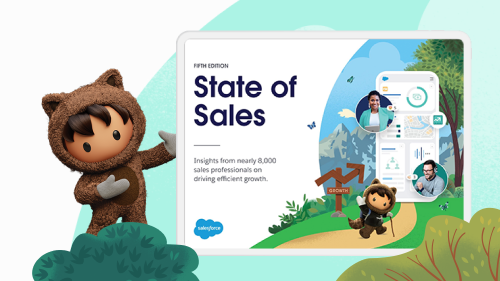As economic uncertainty shapes our immediate future, sales teams across industries are feeling the pressure to perform in challenging conditions. Supply chain issues, inflation, and buyer hesitancy are some hurdles sellers need to overcome, especially in a complex process like B2B selling.

However, it’s not a completely bleak scenario. Despite the changing dynamics of selling, most sales professionals vouch that sales promotion tools are helping them meet enhanced customer expectations and revenue goals in an efficient and cost-effective manner.
Top tools used by sales organisations in India
Investing in efficiency-boosting sales tools helps close more deals, improves customer experience, and enhances sales prediction and performance monitoring, highlights the report. The top tools preferred by sales professionals in India are

1. CRM platform
2. Sales forecasting tools
3. Sales reporting and analytics tools
4. Sales process automation tools
5. Account and contact management tools
Account and contact management tools manage processes around different functions, locations, and touchpoints related to a single customer account in a comprehensive and effective manner. These leverage AI and analytics to enable reps to forecast and enhance account potential, generating greater revenue.
6. Mobile sales apps for employees
From strengthening sales pitches with data accessible in real-time, to quickly responding to customer inquiries, mobile sales apps help sales professionals drive better and more contextual customer engagement. Adding mobile apps to the sales mix lets sales teams access real-time updates and get an integrated view of customer profiles on the go.
There’s no doubt that sales tools such as these can boost efficiency and productivity. But how much is too much?
State of Sales report
Despite their many benefits, juggling too many standalone tools can be a task. Learning and managing different user interfaces, click overload, and frequent training can cause confusion and burnout in an already stressed environment. Using multiple tools can also lead to data siloes, resulting in duplicated efforts and an inability to get a comprehensive view of the customer.
State of Sales report
So how can organisations ensure more streamlined tool usage among sales reps?
How to do more with fewer sales tools
Streamline and modernise sales tech stack
says the report.
Boost CRM adoption
Indian respondents said that 73% of their time was spent in non-selling activities like administrative tasks and researching prospects: State of Sales report
Investing in an intelligent CRM and driving greater adoption among reps makes them aware of how to automate non-selling tasks and declutter their app ecosystem.
the next 12 months : State of Sales report
An all-in-one sales enablement tool is the key
A unified sales-specific CRM like Salesforce Sales Cloud can help organisations eliminate the need for multiple, expensive standalone tools. With features like AI-powered automation, Sales Cloud reduces complexity, maximises savings and increases the productivity of their sales teams, letting them close deals faster than ever before.





